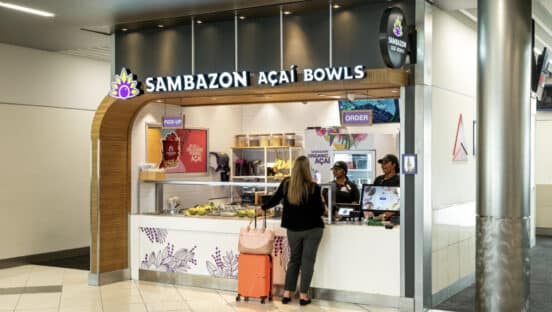As another year draws to a close, it’s natural for business leaders to reflect upon the past 12 months even as they look forward to the coming year. In fact, experts say, the transition from one year to another is the perfect time to reevaluate your brand and, if necessary, redevelop its strategic plan.
And for many, the company’s mission statement is the best place to start with any new brand strategy.
John Kunkel, CEO and founder of Miami-based Lime Fresh Mexican Grill, says staying true to the company’s mission statement has been key to his company’s development. Its mission, he says, is to provide a convenient, upscale, quality experience at an affordable price point. That experience revolves around a friendly staff, fresh produce prepared on site, and a strong commitment to the community.
In the coming year, Lime Fresh Mexican Grill is expanding beyond its 11 Florida locations with new stores in Alabama, Texas, and additional locations as part of a master licensing agreement with Ruby Tuesday. To make sure these new stores are successful, Kunkel says, adhering to the company’s core mission statement is essential.
“We really dissected our brand and who our customers are,” he says. “Extraordinarily operated units are our goal.”
At Atlanta-based Fresh to Order, taking the business to the next level revolves around launching initiatives that have a foundation in the company’s mission statement. Since its inception in 2005, Fresh to Order’s mission “is to provide incredible food, service, and facility in under 10 minutes for around $10.”
Fresh to Order CEO and founder Pierre Panos says he chose this mission statement because it is easily implemented in the stores. “We can use the mission statement in a number of ways,” he says. “We use our mission statement to expand our initiatives.”
For example, in 2012, Fresh to Order will be introducing SmartMenu kiosks in some locations to help customers determine which menu items fit with their dietary needs. Once customers make their selections, they can place their order through the kiosk.
For Panos, this embodies the company’s mission statement in two ways. First, SmartMenu kiosks will help provide “incredible service” to customers by aiding them in the order process. Second, it will help reduce labor costs by eliminating one, or maybe two, cashier positions. This savings will help the company keep prices at “around $10.”
Robby Tonkin, president of Taco Time NW, which has 70 restaurants in western Washington, echoes Panos when he says that a strong mission statement is a necessary foundation for a successful business.
Taco Time’s mission statement is: “Taco Time believes in the ultimate fast dining experience. We promise to serve quality food by caring people who go out of their way to exceed expectations.”
Tonkin says the company is looking at ways to make that mission ring true.
Part of the way Taco Time will do that is by implementing a green initiative in 2012, Tonkin says. This includes having nearly 90 percent of the company’s packaging be compostable, sourcing about 70 percent of its ingredients from Washington, and setting up composting programs in all facilities. “We’re a local company that cares about our community, and we think this is a way to not only do that, but to be a leader in quick service and exceed our guests’ expectations,” Tonkin says.
By adhering to the mission statement and building initiatives that bring it to life, Tonkin says, the company’s financial success will follow.
“If we are creating value for our guests and expanding our reach and finding new guests, we’re going to have a financially viable company,” he says. “We are making choices that say we care about our community, and that enhances that value proposition.”
Community also plays a role in Lime Fresh Mexican Grill’s mission. “Every time we open a store, we pick a local charity so we can tie it in and reinvest in the community around us,” Kunkel says.
His goal is to go into a community and not just be another brand name. The company looks at the prevalent needs in the area before choosing a charity so it knows it’s making a difference in that community, Kunkel says.
A key aspect to successfully implementing a mission statement is having the right people in place who believe and support that mission statement, Kunkel says.
“The upside to this economic downturn is there are some really talented people available right now,” he says. “We have a training department in place that allows the brand to grow in a positive way.”
Given that Tonkin and his management team began looking at their 2012 initiatives early on, they have discussed brand changes with franchisees along the way so adjustments wouldn’t come all at once.
“Our franchisees also have the same commitment [that I do], so they are quick to speak up,” Tonkin says.
Ultimately, crafting a mission statement that everyone can get on board with and support takes ingenuity, Kunkel says.
“If it’s from the heart, that goes a long way,” he says. “If you have to rely on outside sources to tell you where you’re going next, you’re already in trouble.”







